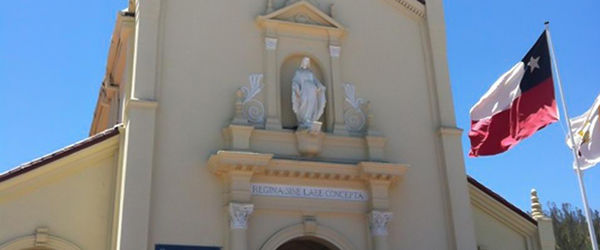The New Evangelization seeks to replace an external “going through the motions” kind of Catholicism with an internal re-awakening among Catholics of their personal and communal connection to Christ, said Paulist Father Frank DeSiano at the 2013 Religious Education Congress.Speaking on “The Year of Faith and New Evangelization” Feb. 23 in place of Cardinal Luis Antonio Tagle of Manila, who had to cancel because of his imminent participation in the papal conclave in Rome, Father DeSiano told the large assembly that the 2012 Synod on the New Evangelization calls Catholics to re-connect with Christ and be part of what the Holy Spirit is doing in the church and world today.Father DeSiano, who was present as a reporter/blogger at the October 2012 Synod (which included among its 260 bishop-participants Archbishop José Gomez), noted that the New Evangelization is not directed at people who do not know the faith, but primarily at people living in countries with a Catholic heritage who have grown complacent or indifferent in their faith.He pointed out that the word “New” in New Evangelization refers to the rapidly-evolving culture in which Christians live and practice their faith. “You look at how children grow up, you look at how communication works, you look at how globalization is influencing everything and the movement of markets and economies — nothing is the way it was even 50 years ago” when the Second Vatican Council took place, noted the priest.“The New Evangelization is talking about where we see ourselves now and how we address that,” explained Father DeSiano. Part of the current reality, he noted, is that less than a quarter of self-identified Catholics in the U.S. go to Mass weekly (17,873,000 Catholics out of more than 74 million). In addition, just 25 percent of Americans born after 1960 are involved in church (compared to 75 percent in the pre-1960 cohort), and only 2 of 10 U.S. young adults go to any church. These numbers, while disappointing, “would look good,” according to Father DeSiano, in historically Catholic countries like France and Spain, where church attendance is much lower than in the U.S.“The Synod was a response to a decline of the practice of the faith in mostly First World countries,” said Father DeSiano. He went on to explain that the Year of Faith, inaugurated at last fall’s Synod, is a call for Catholics to concentrate not only on the contents of faith but also on the state of faith today.“Faith is not primarily about the contents, it’s about the act of trust and the act of loving obedience by which I approach the God who reveals himself through the articles of the Creed,” he said. And, he added, those who study and base their lives on the articles of the Creed are always being challenged to conversion.The Synod Fathers, according to Father DeSiano, said that evangelization has to be understood in a broad and profound theological, doctrinal framework and as an activity of word and sacrament which, especially through the Eucharist, admits the faithful to participation in the life of the Trinity.“And this then arouses, through the grace of the Holy Spirit, the power to evangelize and to give witness to the Word of God with enthusiasm and with courage,” Father DeSiano continued, “If the Trinity is God’s relationship to the world, God’s relational being given to the world, then our whole life is about relating to God and relating to each other.“The starting point, the heart, the core of the New Evangelization is a new or renewed encounter with Jesus Christ, bringing people into relationship with him. This is what faith is — the Catholic faith means to have a personal relationship with Jesus Christ.” Father DeSiano added that this presents a “very radical perspective” for Catholics, many of whom have “jobbed” out the practice of faith to the parish. The Synod participants, he noted, spoke frequently of the importance of family and the need to revive expressions of faith in family situations. Also, participating Synod bishops, mostly from developing Third World countries, shared the importance of small faith communities within parishes.“There is a need for parishes to be dynamic centers to support faith communities and small groups,” said Father DeSiano. In this way, parishes can become “agents of evangelization” reorienting “to the fundamental idea of mission to encounter with Christ, to conversion and sharing.” {gallery width=100 height=100}gallery/2013/0308/congdesiano/{/gallery}

